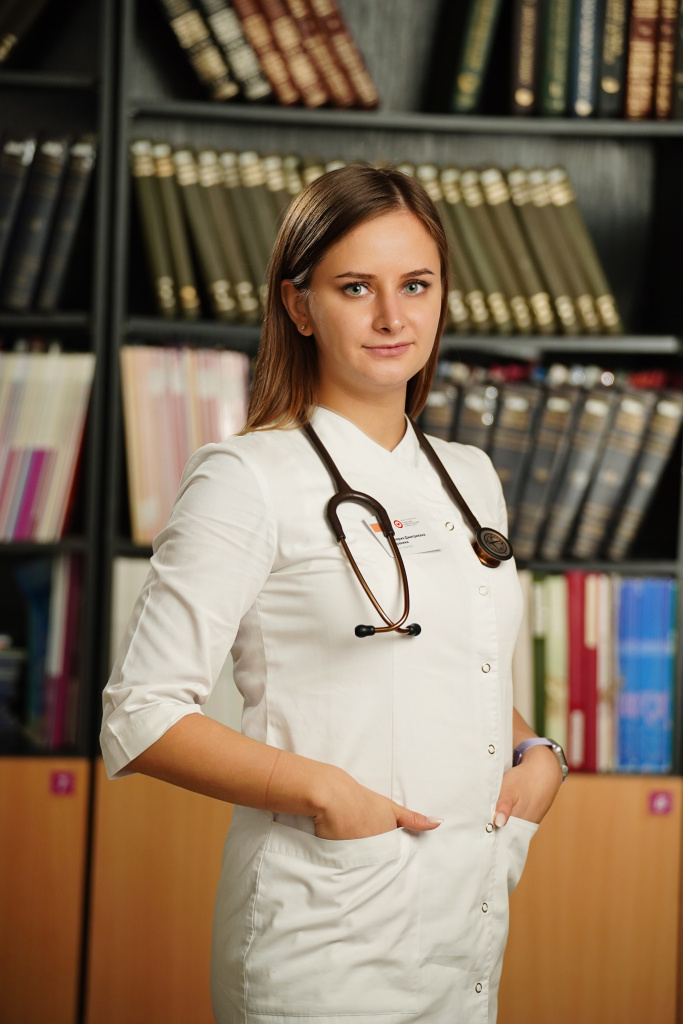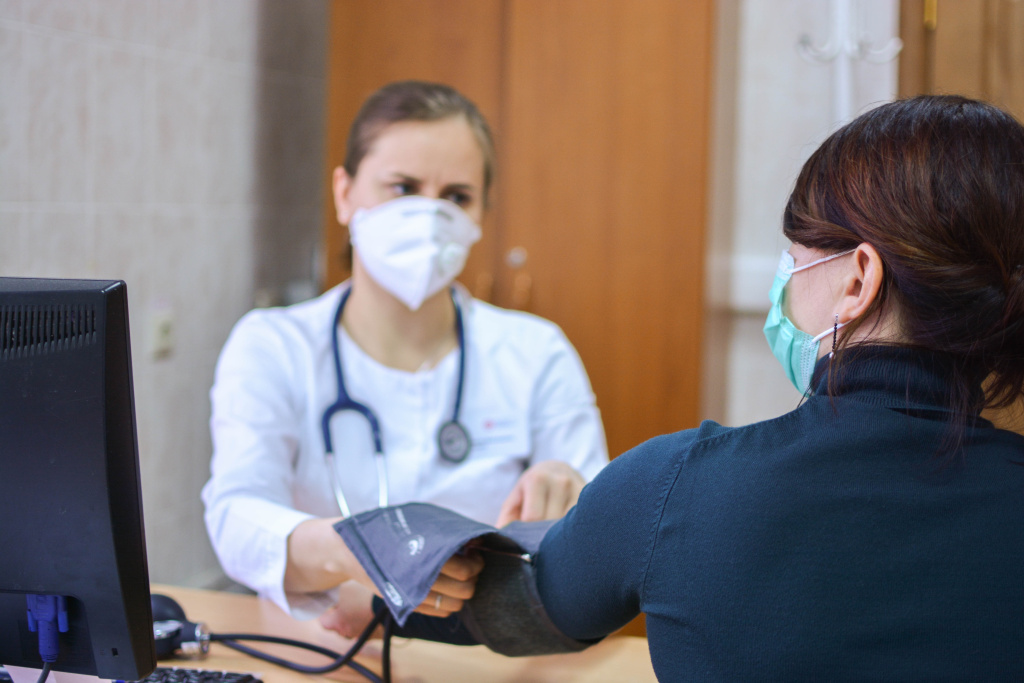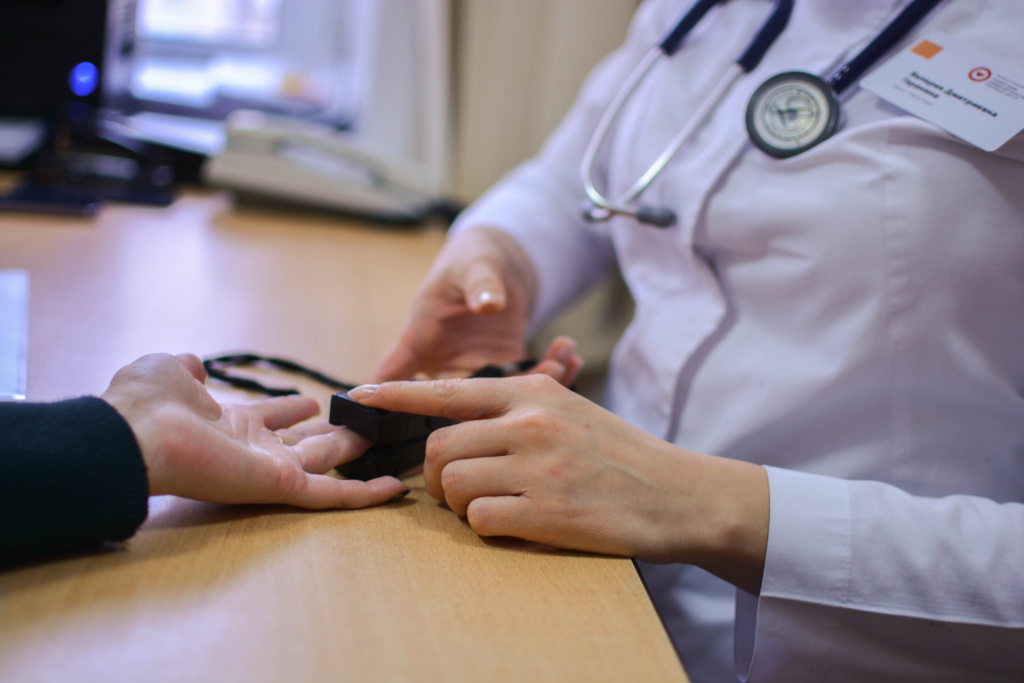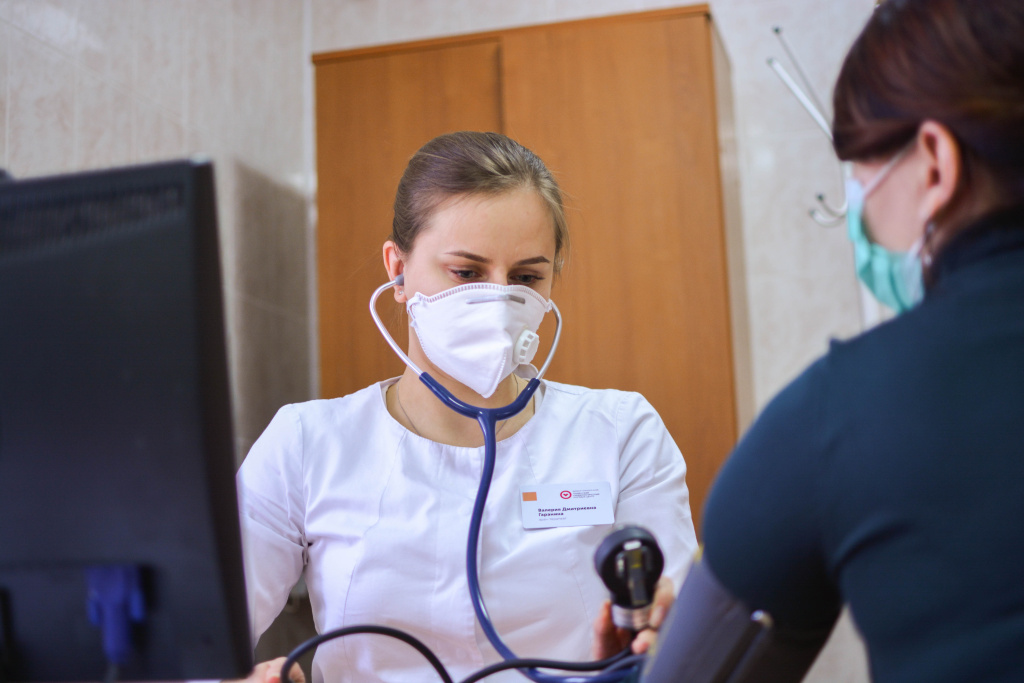• graduated Tyumen State Medical University
• completed the residency in Cardiology at Tyumen Cardiology Research Center, branch of Tomsk National Research Medical Center
• after the residency she stayed to work at Tyumen Cardiology Research Center as a therapist of the Medical Day Unit, an Authorized Physician. She is waiting for accreditation in cardiology.
“I was given a chance to learn from top-class, highly qualified and responsive specialists!”

一 Doing my fourth year at the University I started to work for the Tyumen regional hospital where I understood that I want to do cardiology, to know the complicated heart diseases and see how the patient gets better after my treatment. Heart is a unique organ and I have always wanted to understand the mechanisms of its diseases. A cardiologist is an up-to-date profession nowadays because heart disease has been the leading cause of death worldwide for 20 years.
一Tomsk NRMC gave me the opportunity to learn from highly qualified, competent and responsive specialists, to diversify in the field of cardiology. My classmate was doing residency at Tyumen Cardiology Research Center, her stories about the studies and her high appreciation of the training program prompted me to enter there.
In residency, I got the opportunity to try myself in different fields: in the emergency cardiology department, in the admission department, in the department of ultrasound and functional diagnostics, in the department of the surgical treatment of complex heart rhythm disturbances, in the outpatient department, in the department of arterial hypertension. During the internship, I got acquainted with the conduct of modern instrumental and functional methods of examination and treatment and their interpretation: electrocardiogram, echocardiography, transesophageal electrophysiological examination, 24-hour monitoring, checking and adjusting the parameters of the pacemakers, radiofrequency ablation.

Now I am working at the Outpatient Department as a therapist and a physician of the Medical Day Unit. Soon I will get accreditation of a cardiologist. Cardiologists and other specialists such as neurologists, ophthalmologists, rheumatologists, reflexologists, endocrinologists, and psychiatrists conduct the outpatient visits. All of them have the first of the highest categories; they are candidates and doctors of medical sciences, honored doctors of the Russian Federation. I am happy to work with such experienced and sensitive colleagues!
What does a cardiologist do during an appointment? He listens and examines the patient, interprets laboratory and instrumental studies, makes a diagnosis, prescribes treatment, gives advice on prevention and, if necessary, sends him to hospitalization. For example, if there is a need to receive individual therapy under 24-hour supervision of the medical staff, or an operation is recommended. But the most important thing is that the cardiologist supports, does not leave the patient alone with the problem, does not condemn, does not scold, but helps to cope with the disease together.
Coronavirus and the heart

At Tyumen Cardiology Research Center I got the opportunity to do scientific work. Now I participate in the “Prospective observation of patients underwent COVID-19 associated pneumonia” (the responsible researcher is Elena Yaroslavskaya, MD, PhD, Head and Leading Scientific Researcher of the Laboratory of Instrumental Diagnostics). Together with Elena Gultyaeva, MD, Head of the Outpatient Department, I conduct examination of patients for cardiovascular pathologies and estimation of the influence of COVID-19 associated pneumonia. We assess laboratory and instrumental researches; compare indicators at the moment of hospitalization and after 3 and 12 months after patient’s discharge.
We have started the research in the summer 2020. It is aimed at the study of the virus impact on cardiovascular system and assessment of the far consequence of this insidious disease.
The study involved about 380 patients underwent COVID-19 of mean-severe and severe stage. All patients received treatment at the inpatient department; they were examined after 3 and 12 months after pneumonia.
The issue of COVID-19 is personal for me. I was very worried for my relatives at the peak of the disease. During that very period I was doing examinations of my colleagues at the Center to reveal the virus on time, to correct therapy for those who is on medical leave. We provided help to conduct laboratory and instrumental diagnostics (PCR-test, computer tomography of lungs) of the sick collegues. And later we designed, implemented and now keep on performing the rehabilitation program as the consequences of coronavirus are variable and don't always go away on their own.

Now I am not planning to do other researches, because I go deeper in coronavirus and its consequences issue. For example, in July 2022 we started to study the group of patients underwent COVID-19 associated pneumonia two years ago.
The material was prepared by Ekaterina Dmitrieva, a student of the Higher School of Journalism of Tomsk State University